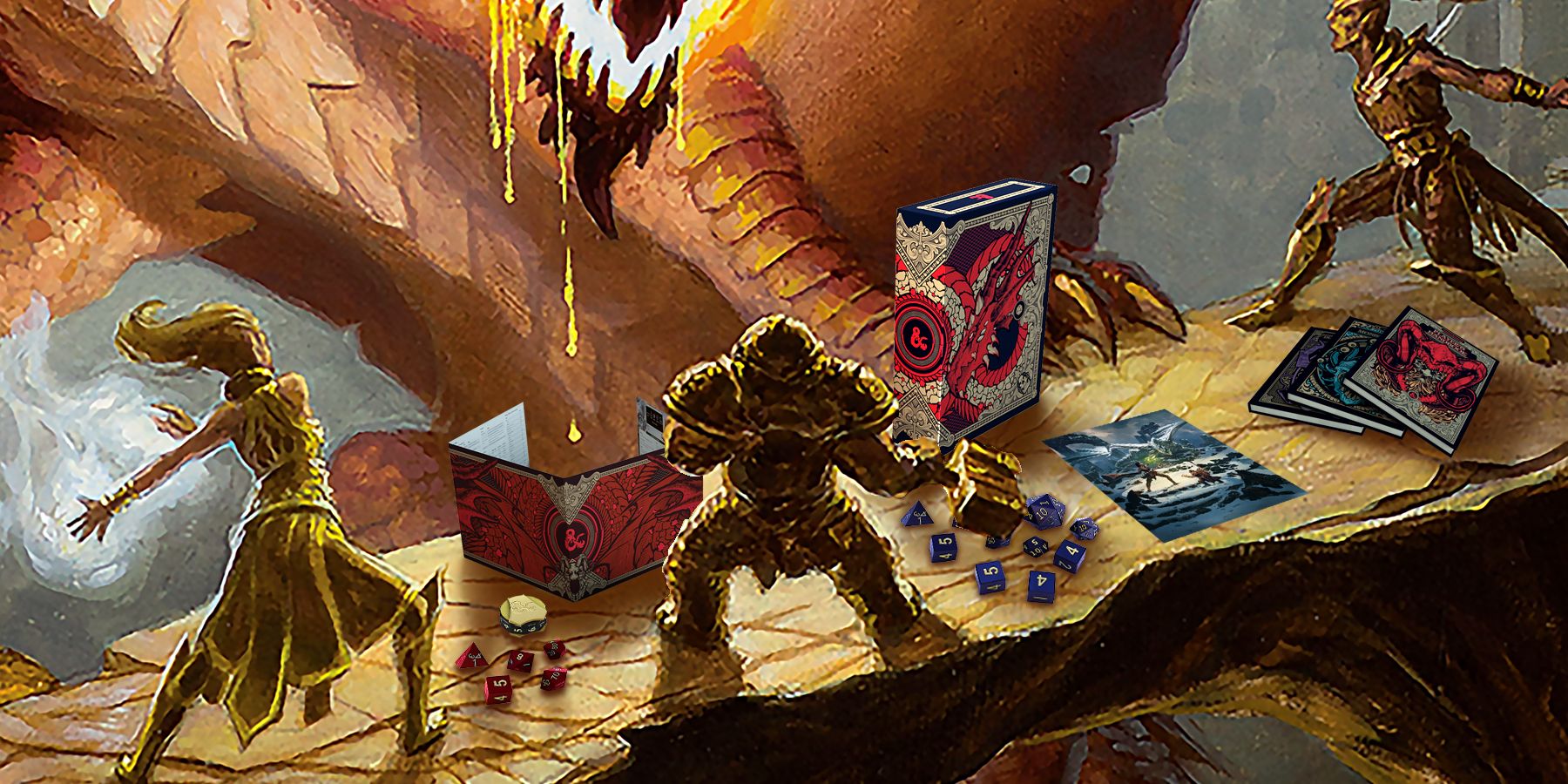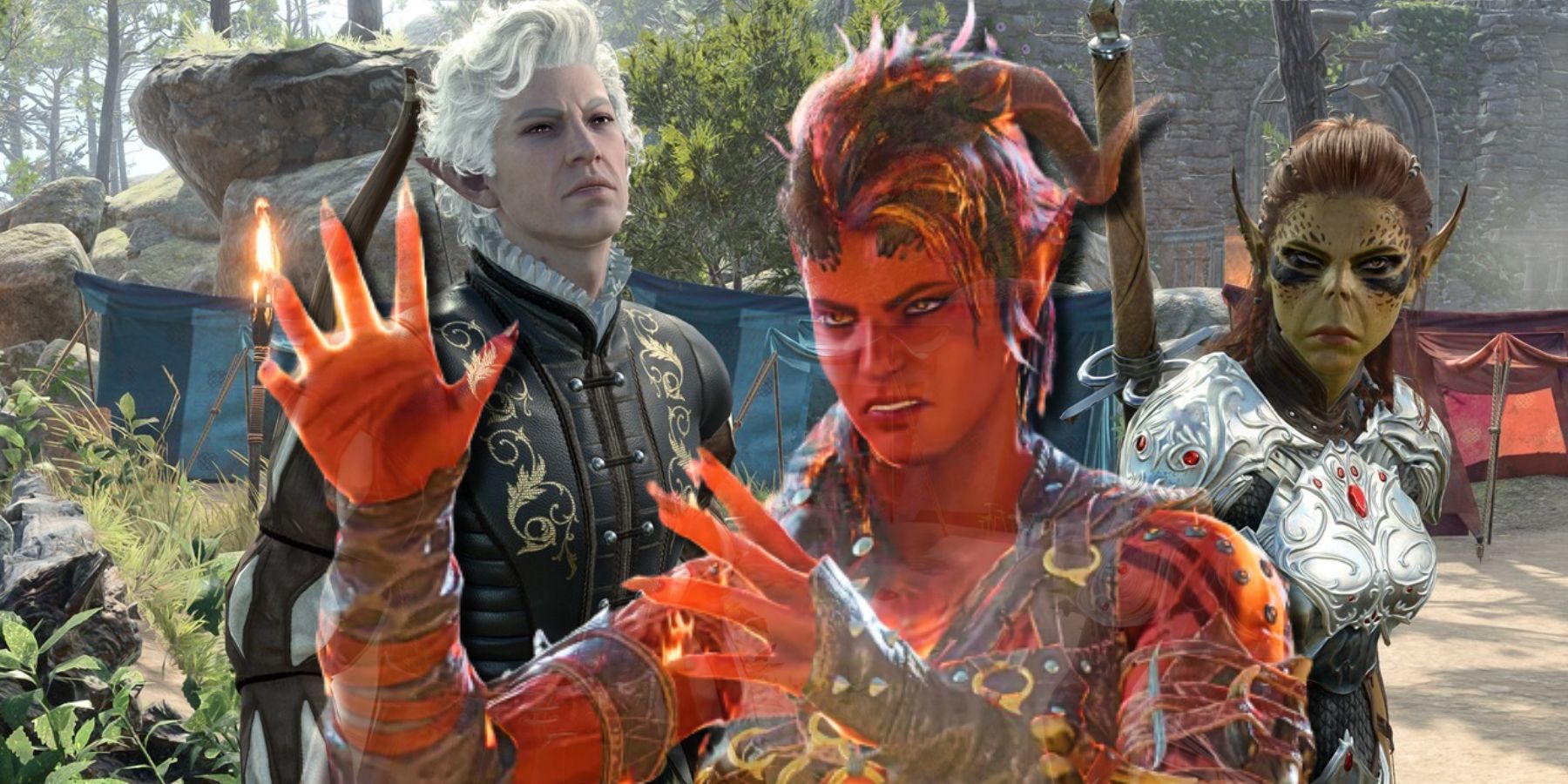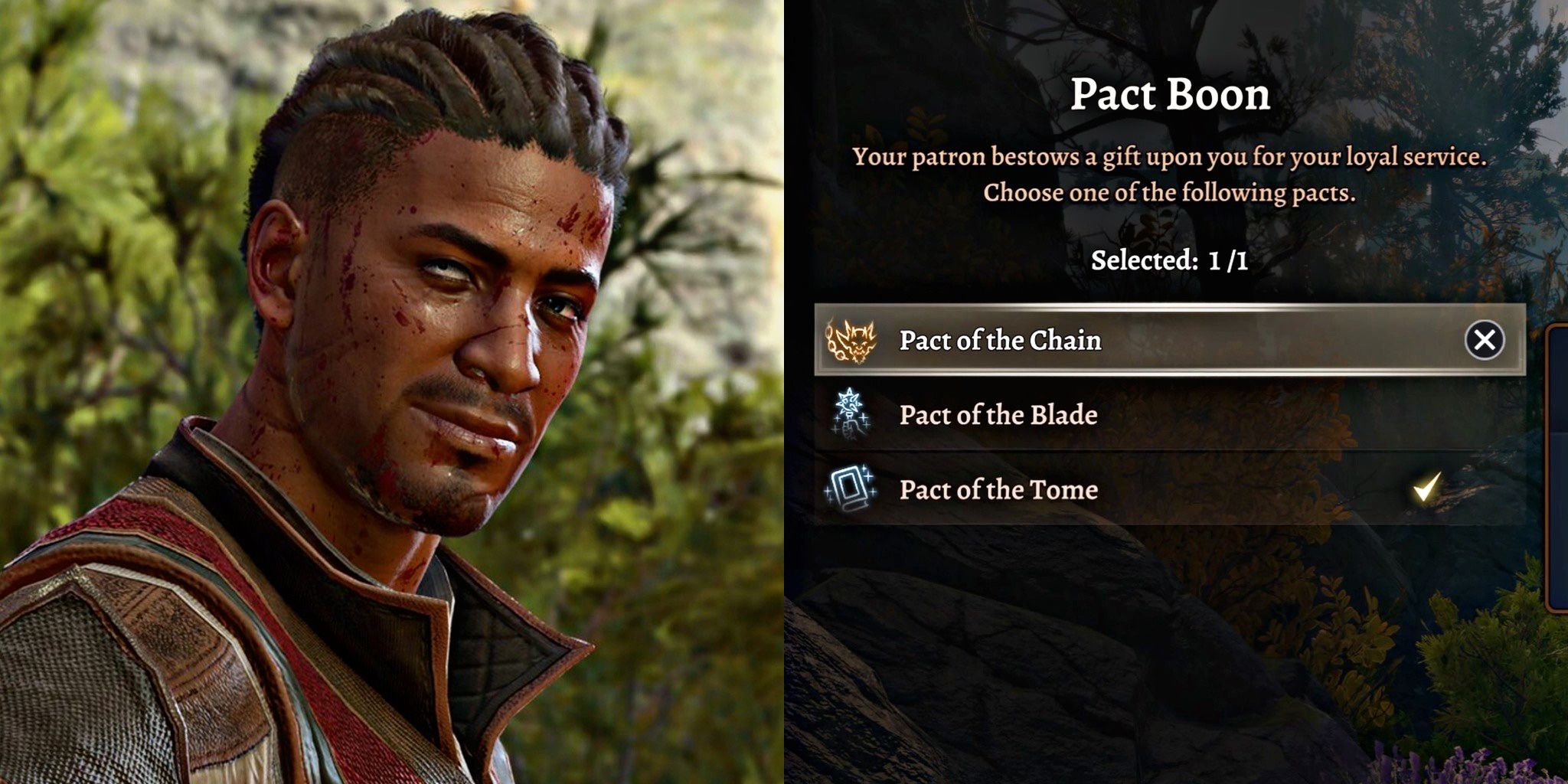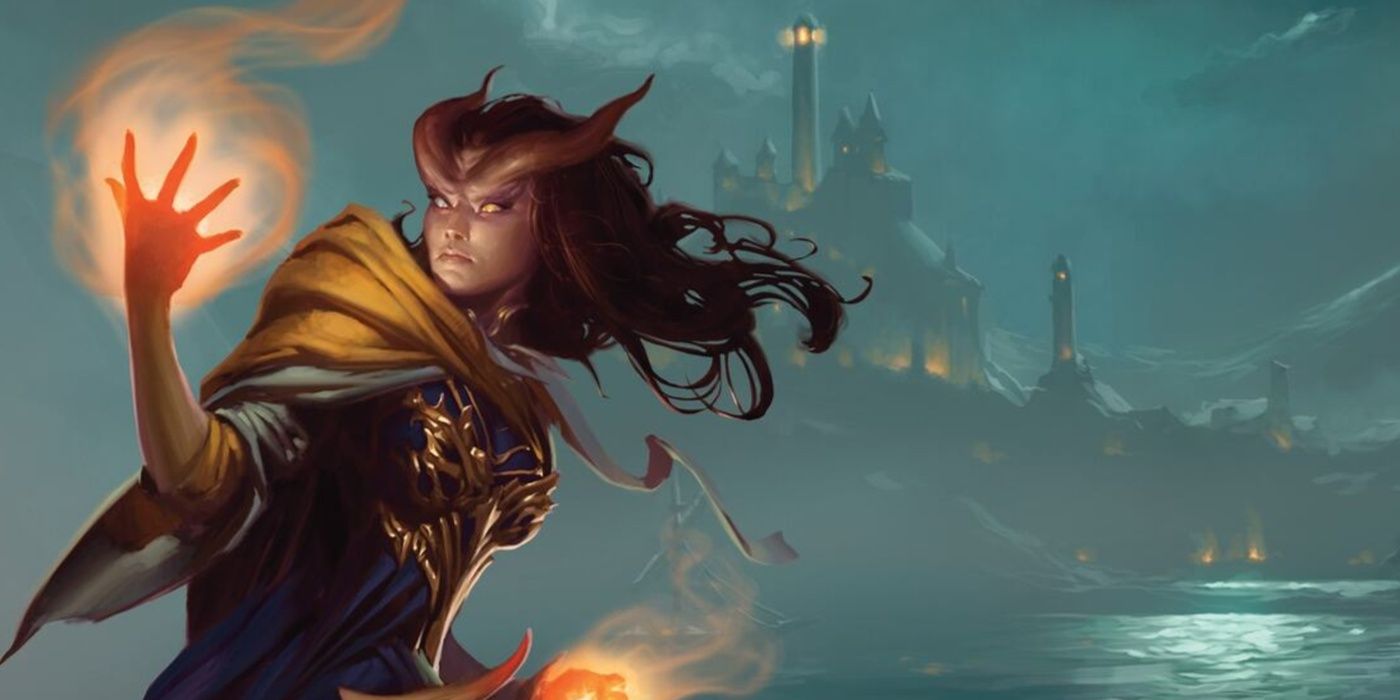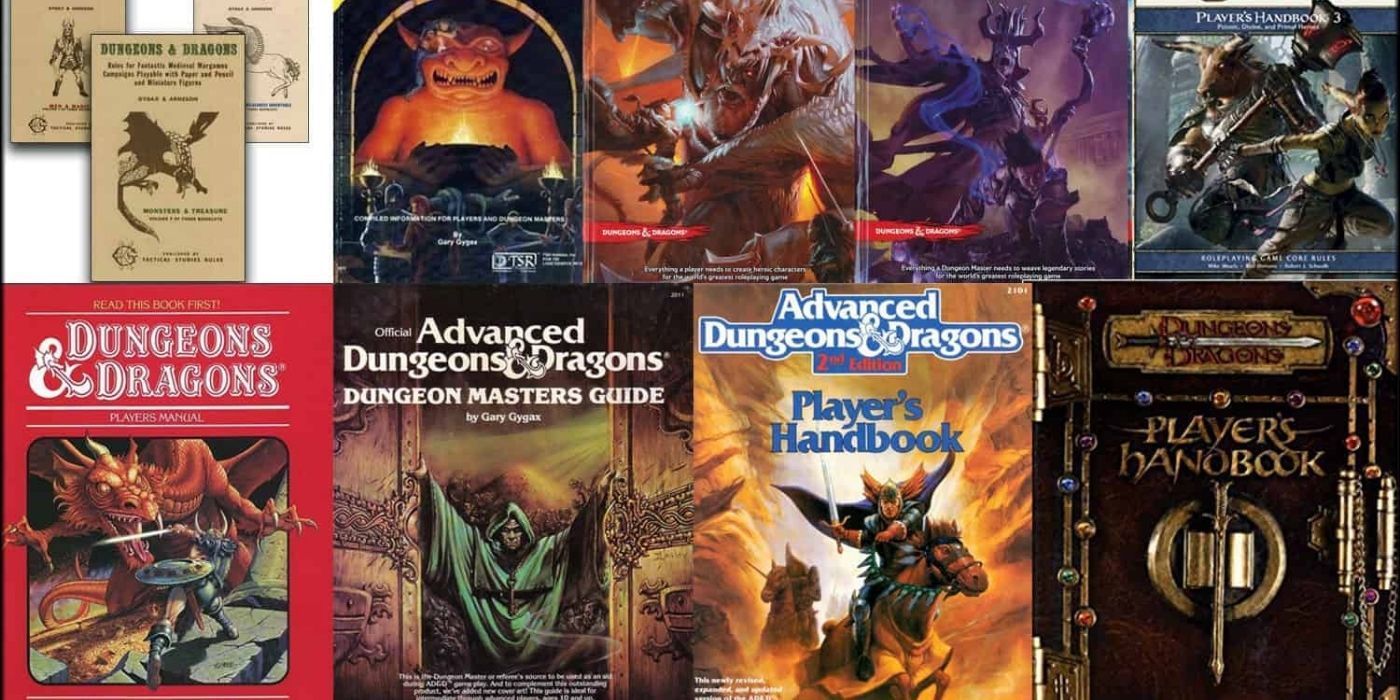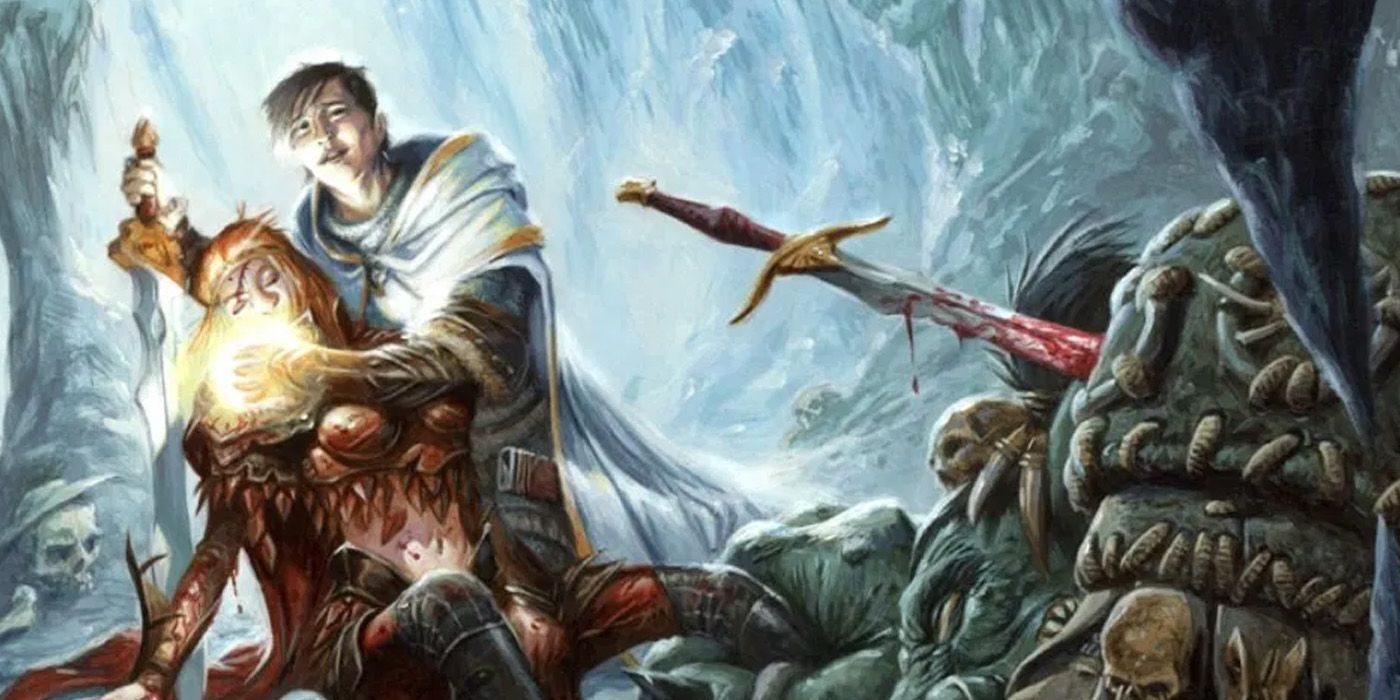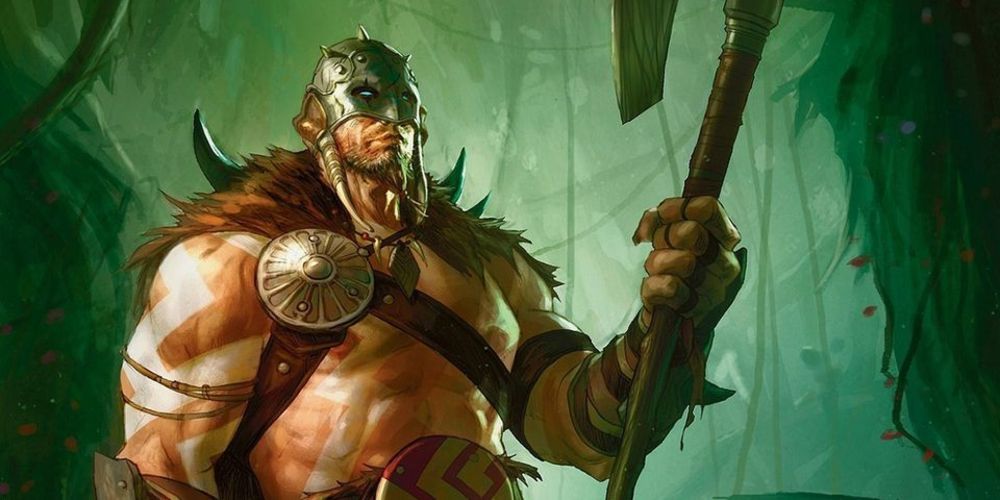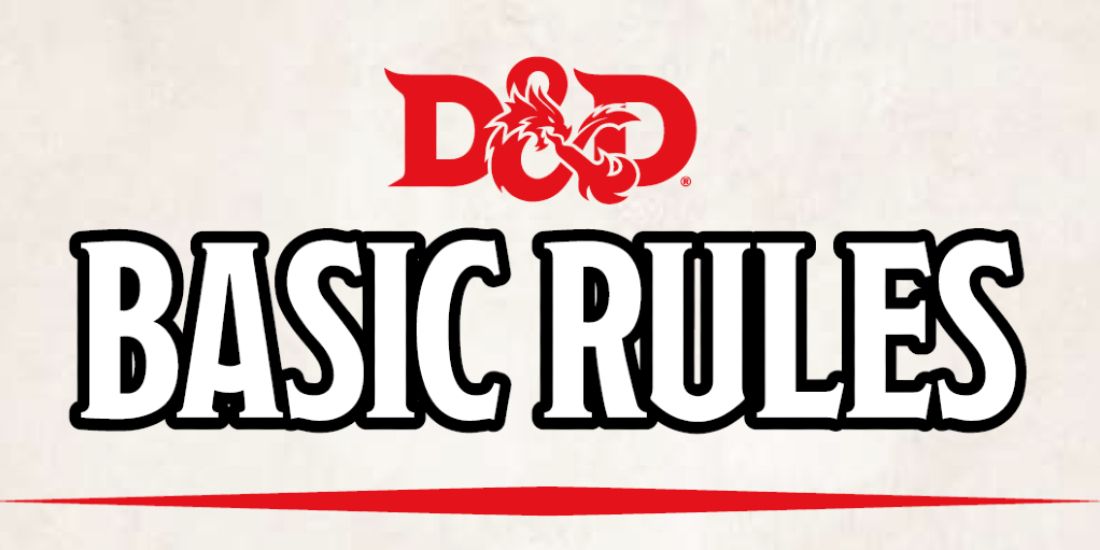Though it's been around for decades now, the vast popularity of Dungeons & Dragons shows no sign of abating anytime soon. Some players pick up this tabletop game because they love video games like The Elder Scrolls and want a game with even more freedom of choice. Meanwhile, others want to be a part of their own fantasy novel like Lord of the Rings.
For some, especially those who aren't used to roleplaying with others, it can seem a little intimidating at the start. There's a lot involved in creating a character, and a lot of mechanics to learn and navigate. But for those who love RPGs and spending time with fellow fantasy nerds, there's no need to fear. Every tabletop veteran starts somewhere.
Updated May 19, 2024, by Demaris Oxman: With Baldur's Gate 3 having been named 2023's Game of the Year, it's no wonder so many gamers are eager to check out the tabletop adventure that inspired it: Dungeons & Dragons. From the world in which it's set to the very mechanics, everything in BG3 is based on the classic TTRPG. Plenty of Baldur's Gate fans have either had their interest renewed in D&D, or been inspired to pick it up for the first time.
Unfortunately, it's not uncommon for a new gamer, eager for an epic fantasy adventure, to sit down at a D&D table, only to wind up confused, frustrated, and discouraged by a game they had hoped to enjoy. To help newcomers avoid these situations, this list has been updated with more tips on how to choose the right campaign and party, get invested in the story, and fall in love with the magic of this classic tabletop game.
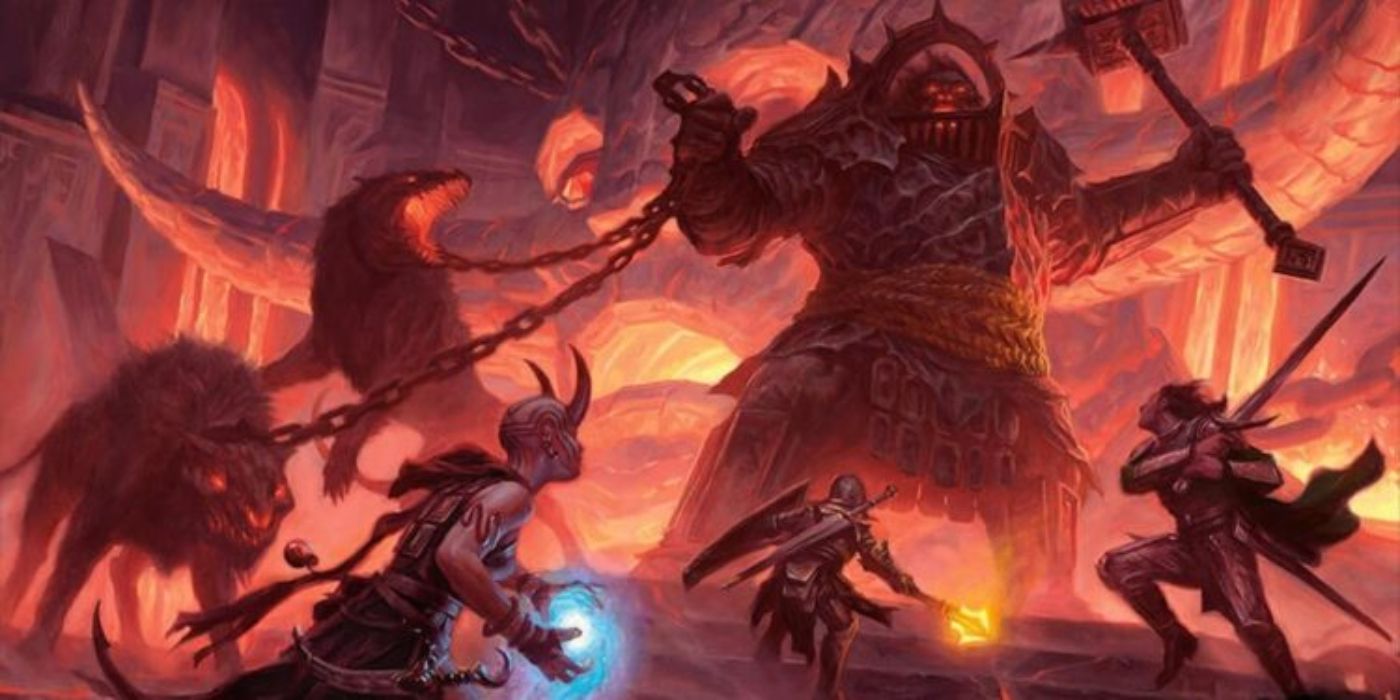
Dungeons & Dragons: 11 Tips For First-Time Dungeon Masters
DMing can be tough your first time around. But with any luck, these helpful tips should make it a smoother experience.
14 Choose The Right People To Play With
Learn Alongside Friends
As a first-time player, it helps to have a mixture of experienced and new players at the table. Obviously, old-timers' knowledge can help speed up the process of learning D&D's somewhat dense and complex systems. Meanwhile, having one or two other new players at the table helps avoid the feeling of being on the spot.
Unfortunately, many gaming communities — including those surrounding tabletop RPGs — have their share of elitists or gatekeepers. Avoid joining campaigns with players who share these attitudes, which can be discouraging and ultimately make the game less fun. Thankfully, there are plenty of D&D players who are always excited to find new converts. New players, especially timid gamers, should find a party of friends who make them feel at ease as they get into character, make mistakes, and learn the ropes. Learning the game together can ultimately be a fun bonding experience.
13 Keep the Party Small
Too Many Players Can Get Frustrating
On a similar note, consider party size. In an adventuring party of seven or eight, it's easy for new D&D players to get lost or overwhelmed. It also makes it harder to find room to participate, leading to players growing bored or struggling to work together. It's hard to enjoy the game if one can't get a word in edgewise.
An adventuring party of three or four (plus the DM) is perfect for a first-time player. With different characters filling a few different roles (damage, stealth, support, etc.), a party this size should be well-balanced in terms of gameplay, and will give everybody room to participate.
12 Choose a Beginner-Friendly Class
Some Roles Are Easier To Learn
For someone dipping their toes into the world of TTRPGs, some D&D classes are much easier to get the hang of than others. Classes like Druid and Sorcerer can be a lot of fun, but new players can easily get overwhelmed trying to keep track of their myriad mechanics. Area-of-effect spells can be hard to control, while being the designated healer can cause a lot of stress for a beginner.
Most D&D players agree that melee classes are the easiest for beginners. The role of a Fighter or Barbarian is simple: hit things and hit them hard. These characters decimate enemies and tend to be pretty sturdy in battle, so new players can make it through encounters with confidence. New players might find these classes boring at first glance, but there's a lot more to them, especially considering the wide variety of subclasses. A Battle Master Fighter learns tons of unique attacks with specific effects, while an Eldritch Knight fighter incorporates magic into their melee.
For new players who have their hearts set on playing a casting class, Warlock is a good choice. Many players bemoan this class's lack of spell slots, but some feel that these limits make it easier to save spells for just the right moment. (Not to mention, they recharge with a short rest instead of a long one.) And, of course, the excellent cantrip Eldritch Blast tends to be their main means of offense, not requiring a spell slot to use. This is also a very versatile class. Warlocks can gain a wide variety of powers that make it easier for new players to navigate the Forgotten Realms, from invisibility to animal speech.
11 Take Time To Create A Backstory
Put the Role in Roleplaying
D&D gives players an incredible amount of freedom in their roleplaying, so creating an interesting character is essential for immersion. Choosing a race, class, and background is important, but thinking about what they mean for an individual helps breathe life into a character.
Sketch out this character's upbringing, their core personality traits, impactful events in their lives, and what led them to strike out on their adventure. Once players do this, it'll be easy to picture how their character reacts to an ogre rushing at them, an NPC telling a lie, or a fellow party member engaging in wild antics. It can also make the game much more rewarding. If players are invested in their fictional character, it's natural to want to know what will happen to them next, to want to take them on a journey to achieve their goals.
10 Keep The Player's Handbook Nearby
The Sacred Text Holds the Answer to (Almost) Every Question
The Player Handbook is every D&D player's bible. Here, information can be found on every race, class, background, spell, god, aspect of combat, and more. New players should take time to read through it in their own time and gain an understanding of the mechanics, particularly ones that pertain to their class.
Keep it handy during sessions as well, to quickly look up spells or items if need be. However, in the midst of the game, players might not always be able to find speedy answers by flipping pages (or using scrolling through a PDF). This leads into the next point.
9 Ask Questions
The Player Handbook Isn't Always Clear
Not sure what a spell's description means? Can't remember what AC or DC stands for? Don't know what it means to be behind cover? Ask! Pausing the game's action for a few seconds is worth it to help make sure everyone is on the same page and having a good time.
More often than not, DM's and other players will be glad to answer questions for friends who are learning the game. And if they aren't…well, refer to the first point. They might not be the best people to play with, especially for a first campaign.
8 Communicate & Speak Up
Don't Be Shy
Following on from the previous point, it's important for party members to talk to each other and discuss. In every campaign, situations will arise that require players to make choices. If players are new to the game, they shouldn't let that fact keep them from speaking up.
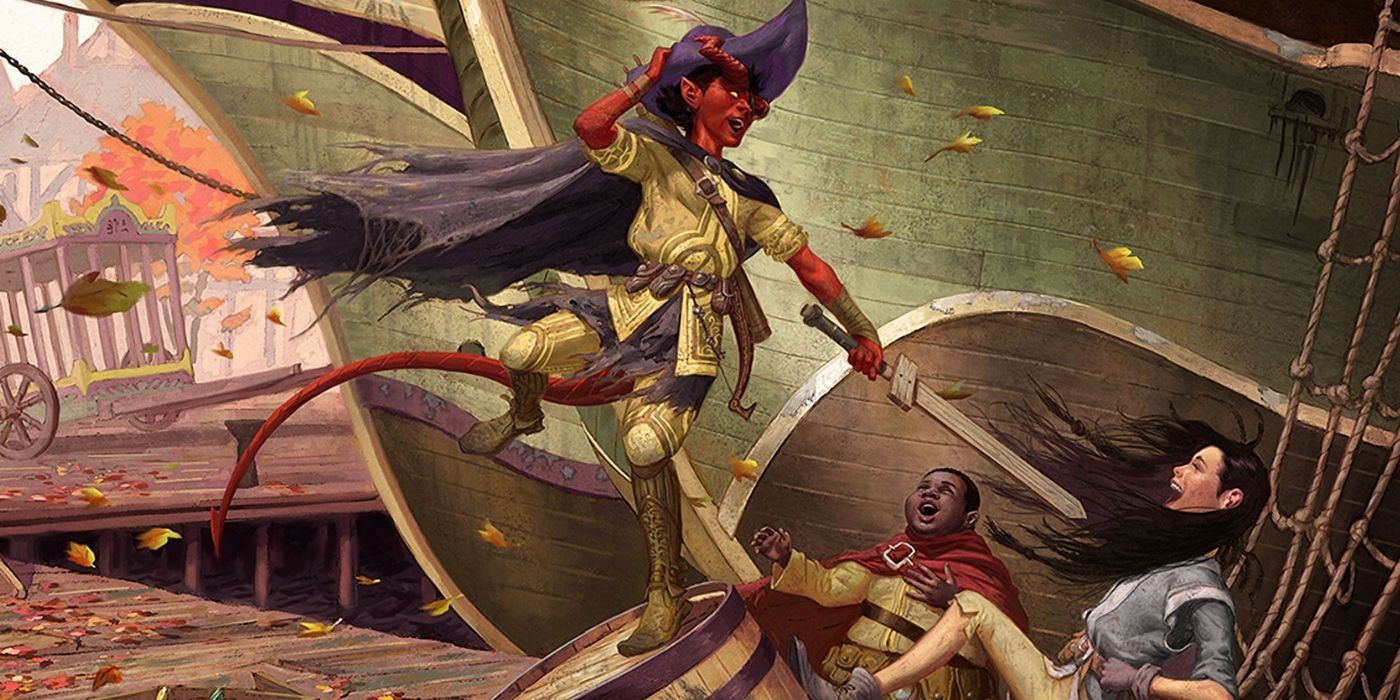
Dungeons and Dragons: What is a Feat Worth?
Feats have taken a backseat in Dungeons and Dragons 5e, leaving many players wondering if they're worth taking at all.
Share ideas on how the party might distract that guard or break into that ominous tower. Does the new player's character have a spell that'll teleport or disguise the party? Interrupt, and let others know — new players have a lot to offer! This kind of strategizing and discussion is especially fun when players stay in character, adding to the atmosphere.
7 Don't Take Over
The Whole Party Should Contribute to the Game
While some new players might have trouble speaking up, it's also not uncommon for some newcomers to try and center themselves at the table. Remember that D&D is a collaborative effort — working together is the most important aspect of the game. Every party member deserves a voice, so don't drown others out.
New players should feel free to share their ideas and roleplay their hearts out, but make sure everyone else gets to do so as well. Approach every situation as a team, whether it's a horde of giants or a dark maze of underground tunnels.
6 Take Notes
An Adventure Journal Can Come In Handy
A lot can happen in one session. After a week (or two or three, depending on how busy players' lives are) has passed in real time, it might be hard to remember everything that transpired the session before. So make notes of important plot points, especially ones that were relevant to one's own character, to avoid feeling lost once everyone rejoins to play again. The character sheet has plenty of space for note-taking — and if it runs out of room, feel free to attach more paper.
In addition to making plot notes, it can also help new players to make notes on certain mechanics. If a player finds themselves forgetting that they have to reload a certain weapon, or prepare specific spells, write it down. Those who play spellcasters often find it helpful to write out spell descriptions on note cards, rather than flipping to the appropriate page every single time. The same may apply to weapons, magic items, and more.
5 Expect The Unexpected
Even the Best Plans Can Fail
Veteran TTRPG players and game masters know that it's incredibly rare for anything to go as planned. Players might circumvent a DM's masterfully engineered fight with a wild gambit from a bard or rogue. On the other hand, someone's bad roll might result in that gambit going down in literal flames.
Every time a player rolls a die, there's no way to know what's going to happen. Part of learning to play D&D is learning how to improvise. This is where understanding a character's backstory can come in especially handy – it makes it easy to react to even the wildest situations.
4 Embrace Every Roll, Even Critical Fails
Improvise, Adapt, Overcome
It's a natural instinct to wince when that 1 appears on a d20. But no matter how dire things look, it's still possible to turn that situation into a humorous moment, or use it to help another player shine. No situation is ever hopeless.

What D&D Class Should You Play, Based On Your Hogwarts House?
Harry Potter's Hogwarts Houses fit well with Dungeons & Dragons' classes. Which classes scream Gryffindor, Slytherin, Ravenclaw, or Hufflepuff?
For example, if a wizard fails to recall knowledge that should be obvious to them, players can cause hilarity by describing their dumbfounded expression or frantic sputtering. If a barbarian charges into the fray only to get knocked out, the cleric might have a chance to show off their new healing spell — and express their character's exasperation. Roleplaying critical fails and working together to overcome them fun.
3 Know That Rules Are More Like Guidelines
House Rules Are Common in Casual Play
This is a little different for every group of gamers, as some adhere to the rules more strictly than others. But for more casual campaigns, like ones that first-timers usually join, rules are a little more flexible. Among groups of friends, enjoying the journey is often more important than the letter of D&D law. What's more, certain situations might not be covered in the rulebooks, and DMs and players must discuss how characters are affected.
A DM might decide to give a player advantage or disadvantage on a given roll if it makes sense for a player's character. For example, a scholar rolling a history check might get a buff if it's in their particular area of expertise. On the other hand, a persuasion check might be rolled at disadvantage if an NPC has ill feelings towards that particular player character.
Casual campaigns often incorporate what some players call the "Rule of Cool." If a player has a clever idea that's ambiguously legal according to the rules, but isn't explicitly prohibited, most DMs will allow it just to see what happens. Pulling off a wild stunt, risky gambit, or creative use of a spell might be the highlight of a session.
2 Stick With It
Learning Takes Time
Don't get discouraged if the first session doesn't go perfectly. Sometimes, there will be bumps in the road as new players learn the game. It might seem a little dense and overwhelming the first time one jumps into the Forgotten Realms, but that's okay.
There's a lot to learn when starting D&D, and unlike with video games, there's no code to remember things for the players. Don't expect to memorize all the mechanics right away; they'll become second nature with time. Of course, if players decide that D&D isn't their thing, that's okay too. Just remember that it takes some time to learn, and give it more than a session or two to get going.
1 Have Fun
Games Are About Enjoyment & Entertainment
This might seem like the most obvious aspect of any game, but it's also one that's easy to forget. In the middle of bloody fights or intense situations, some players might get overbearing or adhere a bit too tightly to the rules, which can stifle party members' creativity. It's important to remember not to take the game too seriously.
Don't be afraid to say or do something silly, if that's what's most in character. Comic relief definitely has its place in D&D, especially when the going gets tough. If players and their friends are laughing together, the game is going right. Roll the dice and venture forth!
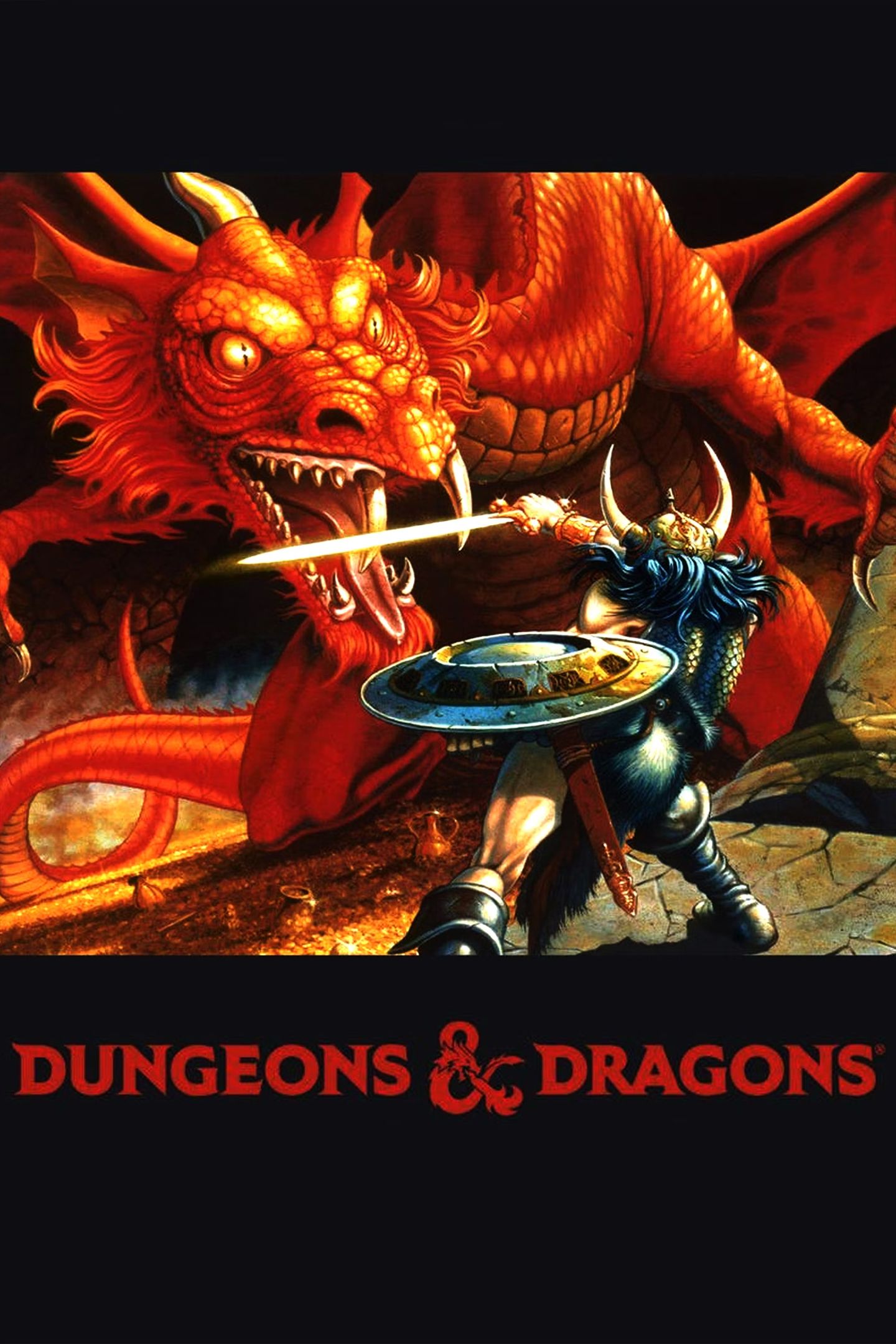
Dungeons & Dragons
- Created by
- E. Gary Gygax , Dave Arneson
Summary
Tabletop RPG
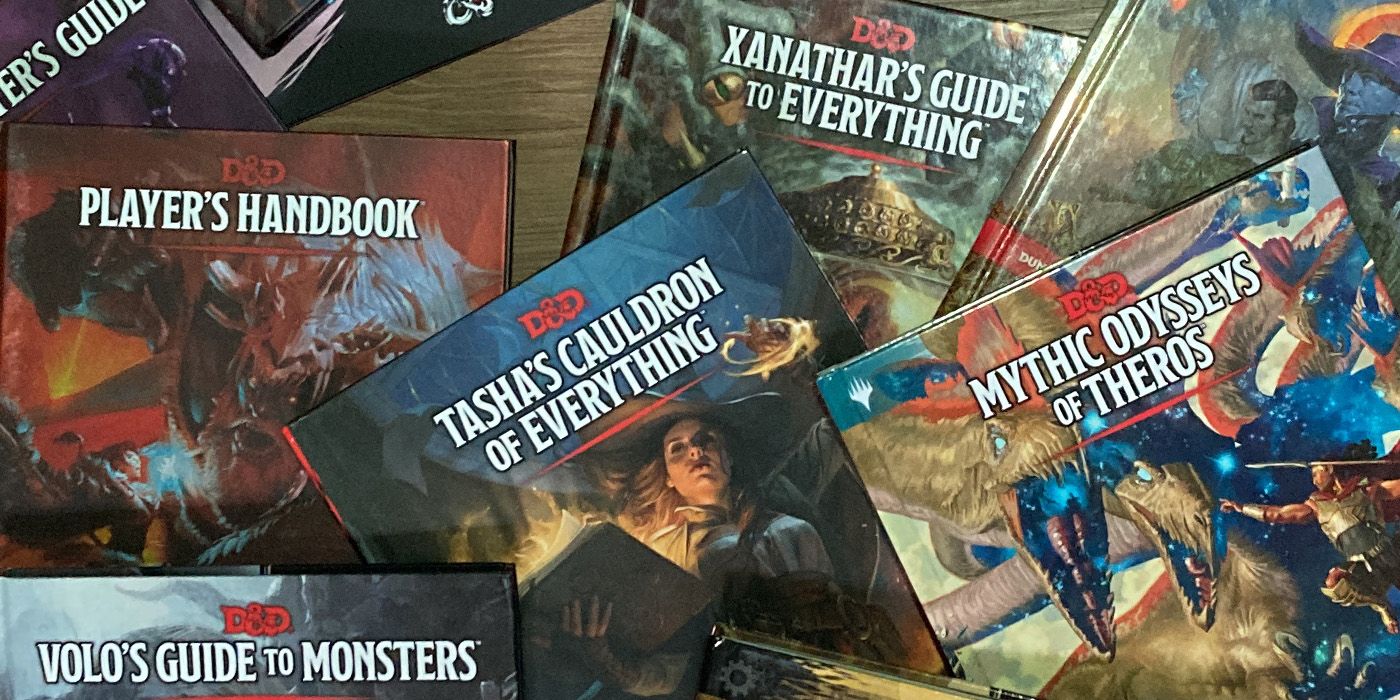
10 Things You Need To Know Before Starting Your First Dungeons & Dragons Game
Dungeons & Dragons can be a bit overwhelming to new players. Here's a look at what you need to know before playing your first game.

